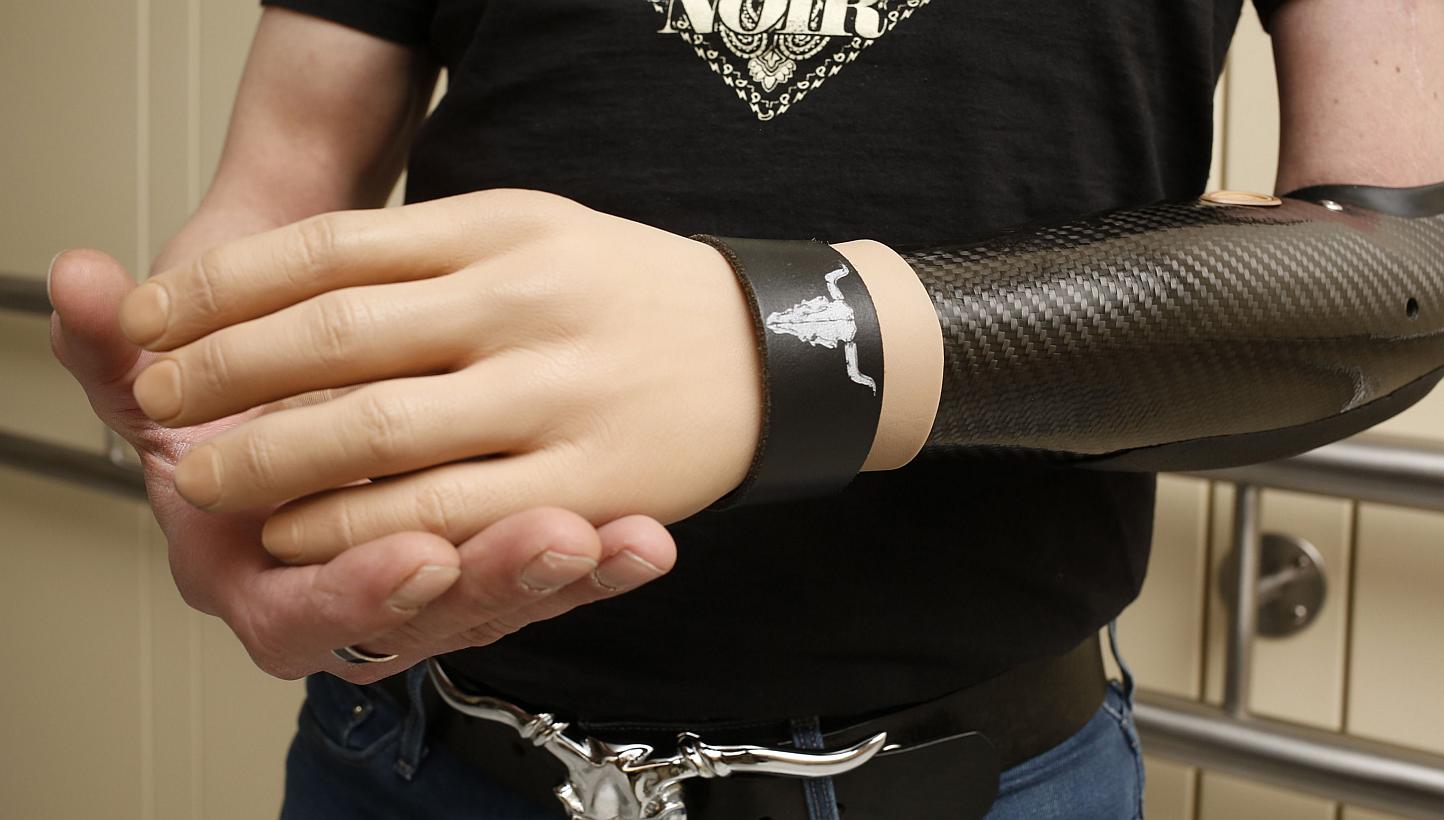Bionic reconstruction allows amputees to mind-control prosthesis arms
Sign up now: Get ST's newsletters delivered to your inbox

(REUTERS) - Three Austrian men with brachial plexus injuries have become the first people in the world to receive mind-controlled prosthetic arms based on a new technique known as 'bionic reconstruction'.
Researchers from the Medical University of Vienna in Austria and the University Medical Center Göttingen in Germany developed the technique that combines selective nerve and muscle transfers, elective amputation, and an advanced robotic prosthesis.
Brachial plexus injuries, often a result of trauma from high-speed collisions, disconnect the hand from the brain.
Researchers were able to record and use the signal from slight contractions in the muscles when the patients move their shoulder, elbow and forearm normally to open the bionic hand.
To close the bionic hand, researchers transplanted a muscle from the thigh into the forearm to amplify a secondary nerve signal. A combination of these two signals allows the patient to rotate the wrist.
Patients undergo cognitive training for nine months to activate the muscles, then learning to use the electrical signals to control a virtual hand. Once they master the cognitive training, they start training with a prosthetic hand attached to their non-functioning hand.
In order to complete the bionic reconstruction, patients have to amputate the existing hand for the prosthetic to connect with the arm.
Three months after the amputation, all three men were able to use their robotic arms to complete tasks they were not able to do before the procedure.
Researchers plan to apply the technique to patients with a functionless hand or leg caused by different injuries. They are also examining ways to decode muscular signals to achieve more intuitive control of the prosthesis.

